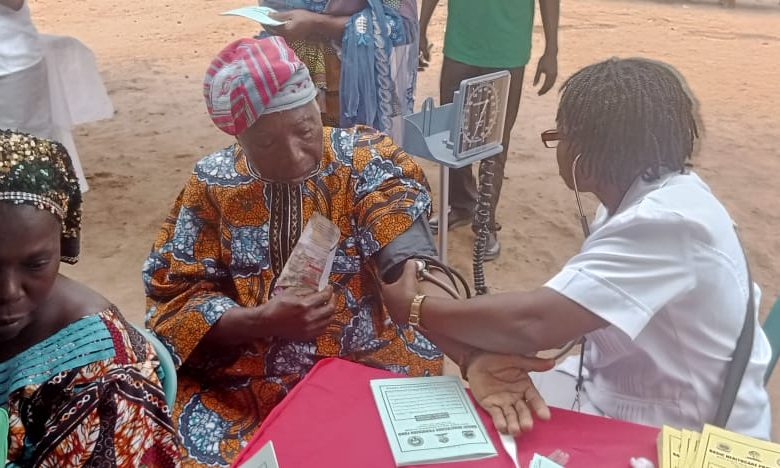By Isaac Atunlute
When billionaire philanthropist Bill Gates visited Nigeria, his message was sobering and direct: Nigeria’s health budget is far too low to meet the critical and growing needs of its population. From maternal mortality to vaccine-preventable diseases, the country’s health care system faces enormous pressure, and funding alone, he emphasised, won’t be enough.
Amidst the challenges, local innovations, partnerships, and community-driven initiatives are pushing meaningful progress in an underfunded system.
A system under strain – but not without solutions
While battling endemic diseases like malaria and polio, Nigeria has one of the highest maternal mortality rates in the world.
Its Basic Health Care Provision Fund (BHCPF), the country’s flagship financing tool for primary healthcare, has suffered from irregular disbursement and inadequate infrastructure. Still, progress abounds.
Gates acknowledged that improvements in states like Lagos and Kano, especially in immunisation and family planning, are signs that good governance and coordination can amplify limited health funding.
A prominent example is the Ekiti State Health Insurance Scheme (EKHIS), which provides quality healthcare at affordable fees. This has helped thousands of residents to access basic medications, routine consultation, and maternal care without fear of steep costs.
In Kwara State, a similar programme that started through donor support has now been expanded with local funding.
Another impactful strategy is task-shifting, which involves training low-level health workers to take on duties typically performed by doctors. Across communities in Nasarawa and Cross River states, trained community health workers provide prenatal check-ups, malaria diagnosis, and immunisation services. This has helped to bridge the human resource gap in far-flung areas.
Smart technology
Nigeria is also leveraging low-cost technologies to reduce maternal and child death. Through support from the Gates Foundation and other collaborators, health workers are learning to use tools like portable ultrasound equipment, bleeding management kits and vaccine patches, solutions that reduce reliance on fully equipped hospitals.
Gates pointed to a recent clinical trial for managing anaemia and postpartum haemorrhage that had to be halted early because of its overwhelming success in reducing maternal deaths at low cost.
Meanwhile, digital health platforms such as Mobihealth and Doctoora are helping Nigerians consult doctors online, receive prescriptions, and order lab tests at costs lower than traditional healthcare models.
Despite the progress in providing faster and cheaper medications to Nigerians, Gates cautioned that they are not substitutes for government action.
“We can assist as partners, but the foundation of sustainable health must be laid and maintained by the government,” he said.
The challenge facing Nigeria at present is not if it has the capacity to improve its healthcare. It is whether it can scale up the local solutions already working and expand them into broader investments for health equity and universal access.
Donor money can spur progress. But the future of Nigeria’s healthcare must be built at home.
During his visit to Nigeria, Bill Gates highlighted the inadequacy of Nigeria's health budget in addressing the country’s severe health issues, such as high maternal mortality rates and vaccine-preventable diseases. The existing Basic Health Care Provision Fund (BHCPF) faces challenges of irregular disbursement and poor infrastructure, yet notable improvements in governance have been seen in states like Lagos and Kano. Efforts like the Ekiti State Health Insurance Scheme and Kwara’s health program are providing affordable healthcare access to many Nigerians.
Local innovations are being adopted to bridge the healthcare gap, including training low-level health workers in areas like Nasarawa and Cross River to perform tasks typically reserved for doctors. Additionally, Nigeria is utilizing smart technologies supported by organizations such as the Gates Foundation, which include portable ultrasound equipment and digital platforms like Mobihealth for remote consultations. However, Gates stressed that sustainable healthcare must be underpinned by government initiatives and not solely by partner assistance.
The primary challenge for Nigeria is not the capacity to enhance its healthcare but the ability to scale successful local solutions into widespread health equity and universal access. While donor funding can catalyze improvements, the long-term strength and sustainability of Nigeria’s healthcare system need to be built internally.






